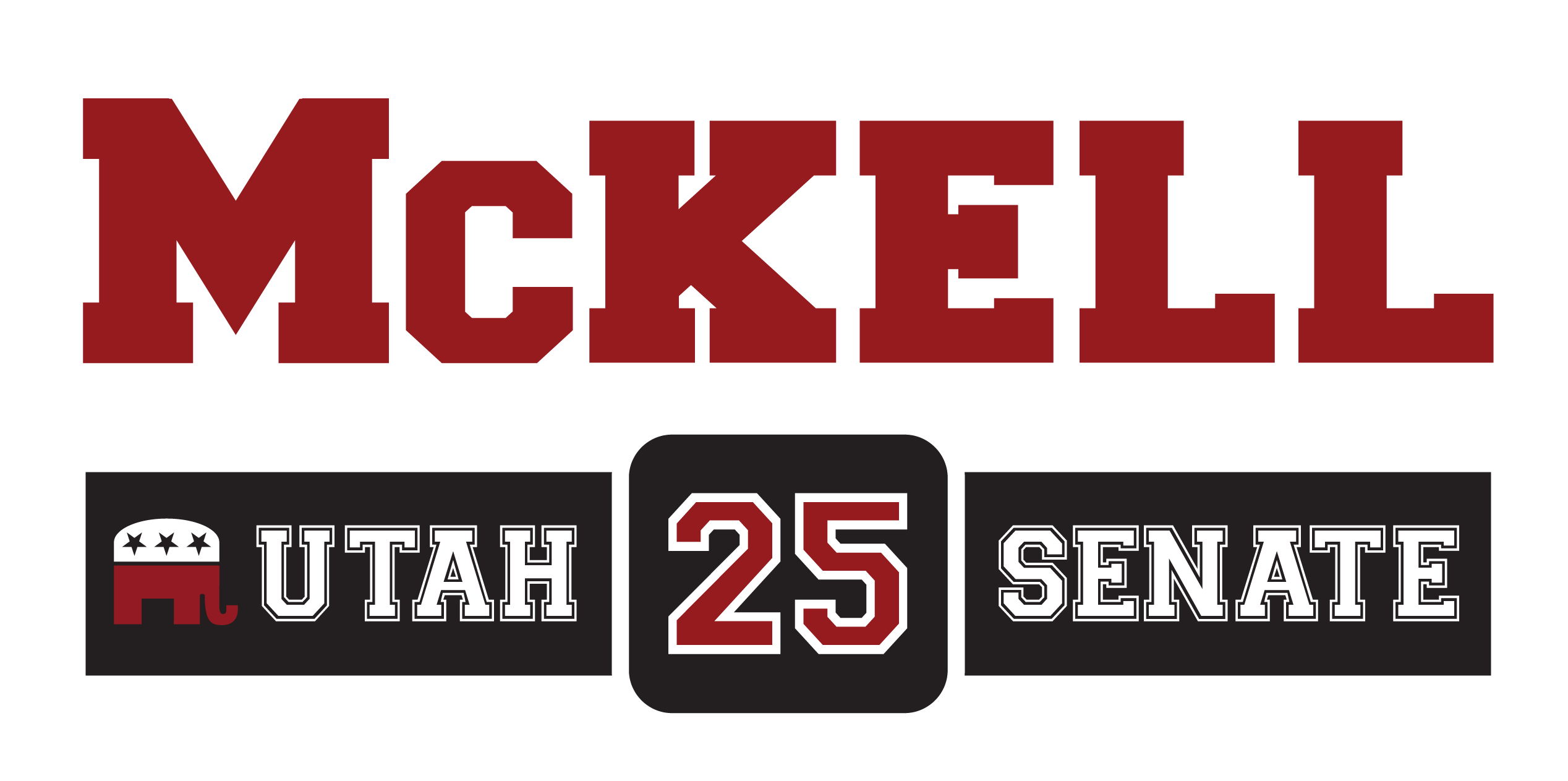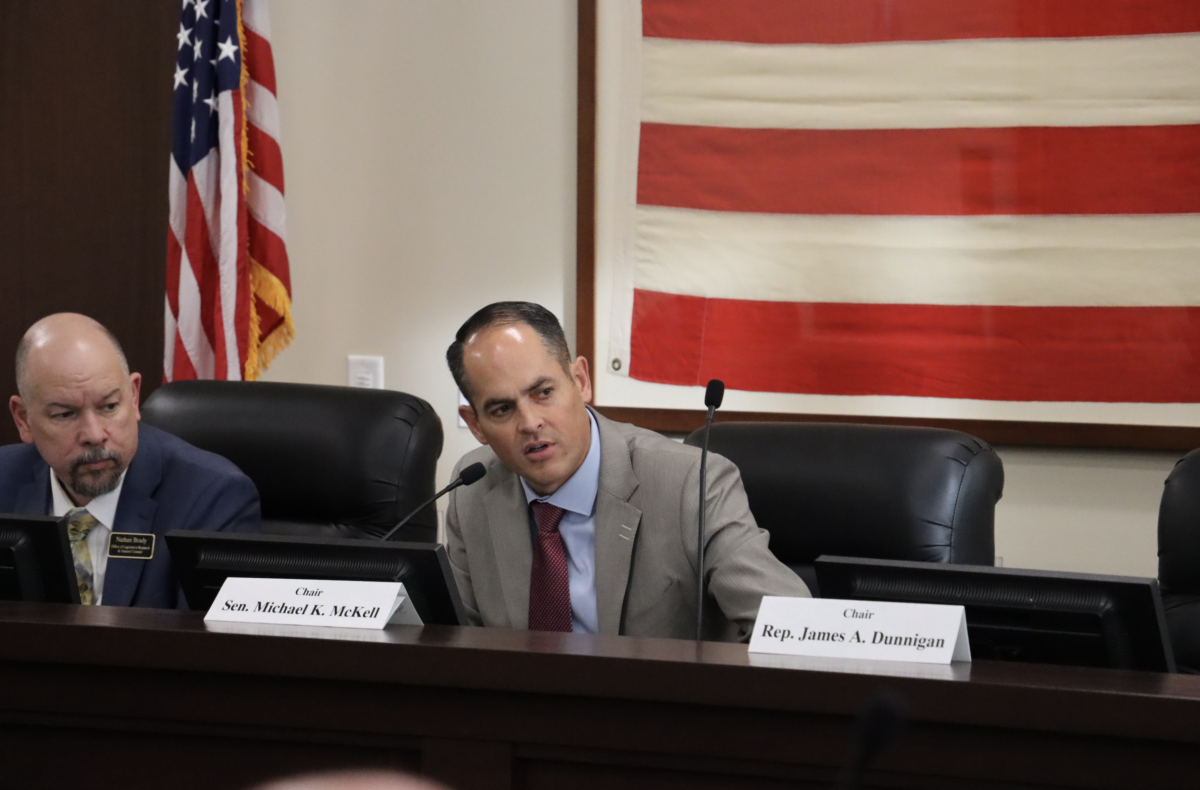Special Session Update
Special sessions serve as a chance for the Legislature to address urgent matters between regular sessions. This month, we convened for the second special session of the 65th Legislature to allocate funds for the special election of Congressional District 2, following Rep. Chris Stewart’s resignation. Ensuring Utah maintains representation with minimal delay is of utmost importance, and we took steps to expedite the process to fill the vacant seat.
We passed H.B. 2001 Election Amendments, which makes temporary amendments to current election law, including changing the dates of the 2023 municipal primary and general elections and appropriating money to cover the costs associated with those changes.
To minimize the amount of time the congressional seat will be vacant and to accommodate this year’s municipal elections, primary elections throughout the state will be held on September 5, 2023, and the general election on November 21, 2023.
H.B. 2001 also modifies deadlines for changing party affiliation status in relation to the special congressional election date and provides for a one-time appropriation of $2.5 million to cover costs.
Congressman Stewart has been a dedicated public servant and good friend. He will be missed as a leader in Utah, and I thank him for his service to our state and nation. We keenly anticipate welcoming a new individual to Utah’s congressional delegation.
Advice and Consent
The Senate convened for advice and consent to confirm the governor’s appointments to several public positions, including eight new members to the Utah Board of Higher Education, Brian Steed as the new Great Salt Lake commissioner and Brian Redd as the new executive director of the Department of Corrections.
Sensitive Materials in Schools
Last year, the Legislature passed H.B. 374 Sensitive Materials in Schools to prohibit pornographic or inappropriate books in school libraries. Since the law passed, school districts created policies and processes to review books with public input. With the new law in place, an individual challenged the Bible’s content for school-aged children in Davis School District. After the Bible was reviewed by a committee, it was deemed inappropriate for younger children in elementary or middle school but appropriate for high school students. The Davis School District recently completed a review on the matter and overturned the committee’s decision, making the Bible available in elementary, middle and high school libraries.
However, the potential removal of the Bible in Davis School District was concerning and, as a result, caused the Legislature to review the processes that led to this point. During this month’s interim meetings, the Administrative Rules and General Oversight Committee, as well as the Education Interim Committee, heard from Davis School Board representatives regarding the Bible being deemed not age-appropriate for elementary and middle school libraries. A bill file was opened during both committees to remedy this type of situation in the future. The bill will be worked on over the next few months and vetted during the 2024 General Session.
Appropriations Subcommittee & Interim Committee Highlights
During this month’s interim meetings, the Legislature’s appropriation subcommittees met for the first time since the end of the general session. Appropriation subcommittees perform an important function in the development of the state’s budget. Each of the eight appropriations subcommittees considers a specific portion of the budget and makes recommendations to the Executive Appropriations Committee regarding which requests should receive state funds. Appropriations subcommittees examine at least 20% of the budget within their purview, guaranteeing the entire state budget is thoroughly vetted every five years.
In addition to appropriations subcommittees, we held meetings to discuss potential legislation and review study items. Following the approval of specific study items, our committees began discussing potential policies in more depth, considering the key subjects and issues facing our state.
Highlights from appropriation and interim meetings are below.
- During the Infrastructure and General Government Appropriations Subcommittee, legislators heard an update from the Utah Department of Transportation (UDOT) on double-tracking the FrontRunner. Double-tracking the FrontRunner system will increase service frequency with a train coming every 30 minutes for all-day service and every 15 minutes during peak commuting hours. Currently, trains only come every hour for all-day service and every 30 minutes during peak hours. Under UDOT’s plan, 50% of the current system will be double-tracked and 10 additional trains will be added. The project completion date for double-tracking the FrontRunner is set for 2029.
- Legislators discussed artificial intelligence (AI) policies for state agencies during the Government Operations Interim Committee. Utah’s Chief Information Officer shared the opportunities and dangers of AI in state government. Though AI is already providing strong productivity gains for the workforce, the Legislature is cautious about the new technology and created a working group to examine the benefits and pitfalls.
- The Natural Resources, Agricultural and Environmental Quality Appropriations Subcommittee heard from the Utah Geological Survey about the need for geologic hazard mapping to mitigate landslides and other hazards in metropolitan, rapid development and high recreational use areas. The need for landslide mapping and geotechnical reports would give researchers a better understanding of Utah’s geological makeup and provide Utahns with safety information about the location of their homes and businesses.
- The Transportation Interim Committee heard from legislative staff on reckless driving and road rage. Utah Highway Patrol also presented data regarding increasing road rage violence in Utah and shared that over the last five years, an average of 770 crashes yearly were due to aggressive driving and road rage, with fatalities steadily increasing in the last three years due to these behaviors. Life-endangering aggressive driving behaviors include:
- Following too closely
- Excessive speed
- Weaving through traffic
- Running stop lights/stop signs
- Improper passing (passing on the right or shoulder, failure to signal)
- Unnecessary honking
These behaviors can escalate to gesturing, yelling, confrontation, assault and murder. Learn de-escalation techniques here and review the presentation here.
- The Economic Development and Workforce Services Interim Committee viewed presentations from the Department of Workforce Services (DWS), the Department of Professional Licensing (DOPL) and Office of Professional Licensure Review (OPLR) regarding workforce expansion. DWS shared how their programs are effectively connecting job seekers to open jobs through labor exchange services, individualized case management and career exploration, coaching and education funding. The committee was also informed roughly 35% of the Utah workforce interacts with DWS and of those, 21.5% successfully find a job.
First-time Homebuyer Assistance Program
During the 2023 General Session, the Utah Legislature worked to combat the state’s housing crisis. One of the solutions was S.B. 240 First-time Homebuyer Assistance Program, which allocates $50 million to aid first-time homebuyers. S.B. 240 is anticipated to help approximately 2,500 Utahns get out of apartments and into homes. With the program, qualifying applicants can receive up to $20,000 to use for down payments, closing costs, or buying down a permanent interest rate.
To qualify for the loan, buyers must purchase a home that is either a new build or has never been lived in and has a final purchase price of up to $450,000. The funds will be made available this summer and qualifying Utahns will receive assistance on a first-come-first-serve basis.
Bryce Canyon Celebrates 100 Years
This month, Bryce Canyon National Park celebrates 100 years. President Warren G. Harding first deemed Bryce Canyon as a national monument on June 8, 1923. Five years later, Bryce Canyon National Park was officially established.
Bryce Canyon is a national and state treasure offering unparalleled views and experiences for over a million people each year. The national park’s rich landscape is home to the world’s most extensive collection of hoodoos, a specific rock formation. It also has more than 70 miles of trails and more than 60 million visitors from around the world have come to this unique national park. I join the rest of Utah and the U.S. in celebrating its centennial anniversary!

